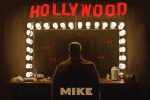Ever since 19th century pianist and composer Franz Liszt, the musical celebrity has fascinated audiences. This love translated into cinematic success as early as 1909’s “Origin of Beethoven’s Moonlight Sonata” and persists today. People love to see the lives of pop stars on display, and the biopic delivers in two or so hours. But we live in a cynical world with quick internet access and fact-checking articles. When the lives of N.W.A, Queen and Elton John cross the silver screen, do they truly hold up?
In this decade, the life stories of three music acts succeeded beyond all expectation. “Straight Outta Compton,” the rise and fall of rap group N.W.A, netted $200 million, while pop star Elton John’s “Rocketman,” in theaters now, has nearly equal numbers. The Queen biopic, “Bohemian Rhapsody,” surpassed $900 million and received four Academy Awards.
These films are massive hits and helmed a trend. Chronicles of Elvis Presley, Celine Dion and Amy Winehouse are in production, while movies based around an artist’s discography, like the Beatles-centric “Yesterday” and Bruce Springsteen’s “Blinded by the Light,” are coming in vogue. “Rhapsody,” “Rocketman” and “Compton” are setting a standard of oversized anthems and cultural touchstones for the musician biopic. Do they set a good standard?
Translation to film can be hard enough for any medium, but for films based on real-life events, especially more sensitive topics like addiction or illness, the cinematic versions are nightmarish. The biopic must strike a balance between accessibility for audiences, accuracy to the source material and respect to the artists.
The failure to do so can result in something like Nina Simone’s family disowning the film “Nina,” which is based on the R&B singer’s life. Each of these movies must tread carefully, especially since Freddie Mercury of Queen and Eazy E of N.W.A both died of AIDS complications in the early ‘90s.
In order to do so, the films’ various production crews employ the subjects. Dr. Dre and Ice Cube of N.W.A as well as Elton John produced in their respective films, while MC Ren and DJ Yella of N.W.A fulfilled a creative consultant role; Queen’s Brian May and Roger Taylor did likewise. Doing so allows artists to guide the films to an extent. Their involvement can help avoid unseemly scenes in the finished product.
Even this is not a guarantee. May claimed earlier this year that the surviving members of Queen have yet to be paid from “Rhapsody,” while Ren felt “Compton” diminished his contributions to N.W.A. N.W.A manager Jerry Heller outright sued the filmmakers over his portrayal as a manipulator. With that in mind, the films themselves are ready for analysis.
“Compton” and “Rhapsody,” despite their realist approach, diverged more from the lives of N.W.A and Queen than the outlandish “Rocketman.” To be clear, the focus is not origins of individual songs but the larger life stories. The edits of “Compton” serve two purposes: streamline or mythologize.
https://www.instagram.com/p/5uuC7XJxNv/?utm_source=ig_web_copy_link
Founding member Arabian Prince left N.W.A before their debut, so he does not appear in the film. Ren and Yella were never focal points like Dre, Cube or E, so they stand as minor characters. These changes, while sacrificing lesser known members of the group in favor of the stars, keep “Compton” running smoothly.
Other changes in “Compton” are more fundamental. The film glosses over Dre’s history of assault in the ‘90s, prompting a public apology from Dre. The omission is off-putting. Perhaps Dre honestly wanted to present himself more as he wished he was rather than how he was in reality. Perhaps “Compton” engages in image rehabilitation.
https://www.instagram.com/p/_pqy3NJxB7/?utm_source=ig_web_copy_link
On the other end, manager Heller claimed the film demonized him as a treacherous embezzler when N.W.A’s spending habits were at fault. This topic has been debated for decades, but Heller’s preexisting reputation forced the film’s hand. In addition, emotional pain might still linger around Heller for N.W.A. Ironic as fabrication is for a “reality” rap group, “Compton” has somewhat understandable motives.
The changes in “Rhapsody” are more insidious. In the film, Mercury decides to go solo, effectively destroying the band. Once free of his manipulative lover, he must plead with the other members for a reunion at the Live Aid charity concert. While rehearsing, Mercury reveals his AIDS diagnosis. Reality tells a different tale: Mercury learned of the infection in 1987, well after the 1985 Live Aid concert.
https://www.instagram.com/p/BuWw1oQhNIf/?utm_source=ig_web_copy_link
The performance was not a reunion because Queen had not broken up. “Rhapsody” sets the split soon after 1982’s “Hot Space,” but the band released “The Works” in 1984 and were touring continuously. No breakup happened. If a solo career were to disrupt the band, drummer Taylor and bassist John Deacon both released solo albums before Mercury.
All these changes serve to create a cliché breakup/makeup moment toward the end of the film. These and other radical divergences flatten Queen’s story into a typical rock movie formula at the cost of Mercury. “Rhapsody” continually casts him as a pretentious, arrogant, attention-seeking and self-absorbed diva until he’s left with nothing. He must beg his old friends for forgiveness after he spirals out of control.
https://www.instagram.com/p/BtGxomMBAo4/?utm_source=ig_web_copy_link
The film erases Mercury the generous gift-giver who took Princess Diana in drag out on the town without justifying the mean-spirited portrayal. Given the blandly positive roles of May, Deacon and Taylor, “Rhapsody” rings hollow.
To end on a positive note, “Rocketman” is the polar opposite. Other than the song chronology, John’s life is fairly intact. Relatives protest the father’s coldness, and he never had a full split with lyricist Bernie Taupin; John’s personal testimony aligns with “Rocketman,” and he did work with other songwriters for a short time.
https://www.instagram.com/p/BybCeWGB9oj/?utm_source=ig_web_copy_link
Overall, the film was accurate, showing the cocaine-fueled lows of excess without losing its humanity. Even though many characters act callously or despicably, no character feels or is fully a fiction.
The greatest strength of “Rocketman” in this regard is framing. Rather than a straightforward biography, John sets his life story as an imaginative flashback during therapy. This approach lets the movie color outside the lines because “Rocketman” is not a strictly factual movie. The movie does still confront John’s downward spiral, but by distancing itself from a literal retelling, “Rocketman” succeeds where “Compton” stumbles and “Rhapsody” collapses.
https://www.instagram.com/p/BzVstq5B4g9/?utm_source=ig_web_copy_link
What do these films portend for the musician biopic? “Compton” foretells some sidestepped scandals and concessions to public narrative. “Rhapsody” speaks to a formula-over-fact approach with underlying tensions between artists. “Rocketman” offers hope of more faithful and imaginative life stories.
The musician biopic is on the rise. Hollywood has rediscovered the secret to these films, and audiences have rediscovered over one billion dollars’ worth of tickets. Maybe the future involves self-serving, by-the-numbers award bait, or perhaps more creative and honest movies will appear. Until time tells, rock on.
















